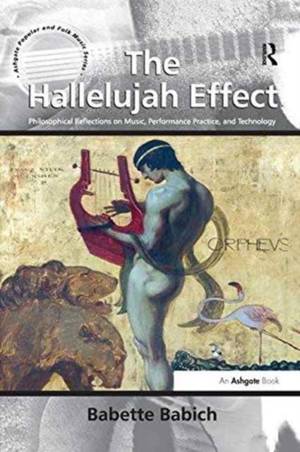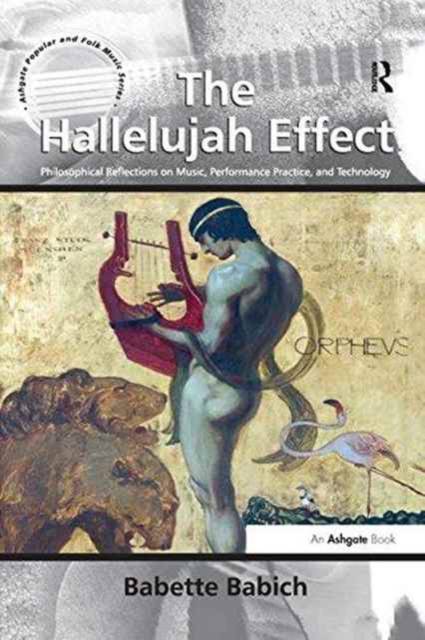
- Afhalen na 1 uur in een winkel met voorraad
- Gratis thuislevering in België vanaf € 30
- Ruim aanbod met 7 miljoen producten
- Afhalen na 1 uur in een winkel met voorraad
- Gratis thuislevering in België vanaf € 30
- Ruim aanbod met 7 miljoen producten
Zoeken
The Hallelujah Effect
Philosophical Reflections on Music, Performance Practice, and Technology
Babette Babich
€ 70,45
+ 140 punten
Uitvoering
Omschrijving
This book studies the working efficacy of Leonard Cohen's song Hallelujah in the context of today's network culture. Especially as recorded on YouTube, k.d. lang's interpretation(s) of Cohen's Hallelujah, embody acoustically and visually/viscerally, what Nietzsche named the 'spirit of music'. Today, the working of music is magnified and transformed by recording dynamics and mediated via Facebook exchanges, blog postings and video sites. Given the sexual/religious core of Cohen's Hallelujah, this study poses a phenomenological reading of the objectification of both men and women, raising the question of desire, including gender issues and both homosexual and heterosexual desire. A review of critical thinking about musical performance as 'currency' and consumed commodity takes up Adorno's reading of Benjamin's analysis of the work of art in the age of mechanical reproduction as applied to music/radio/sound and the persistent role of 'recording consciousness'. Ultimately, the question of what Nietzsche called the becoming-human-of-dissonance is explored in terms of both ancient tragedy and Beethoven's striking deployment of dissonance as Nietzsche analyses both as playing with suffering, discontent, and pain itself, a playing for the sake not of language or sense but musically, as joy.
Specificaties
Betrokkenen
- Auteur(s):
- Uitgeverij:
Inhoud
- Aantal bladzijden:
- 308
- Taal:
- Engels
- Reeks:
Eigenschappen
- Productcode (EAN):
- 9781138274136
- Verschijningsdatum:
- 9/09/2016
- Uitvoering:
- Paperback
- Formaat:
- Trade paperback (VS)
- Afmetingen:
- 156 mm x 234 mm
- Gewicht:
- 458 g

Alleen bij Standaard Boekhandel
+ 140 punten op je klantenkaart van Standaard Boekhandel
Beoordelingen
We publiceren alleen reviews die voldoen aan de voorwaarden voor reviews. Bekijk onze voorwaarden voor reviews.







